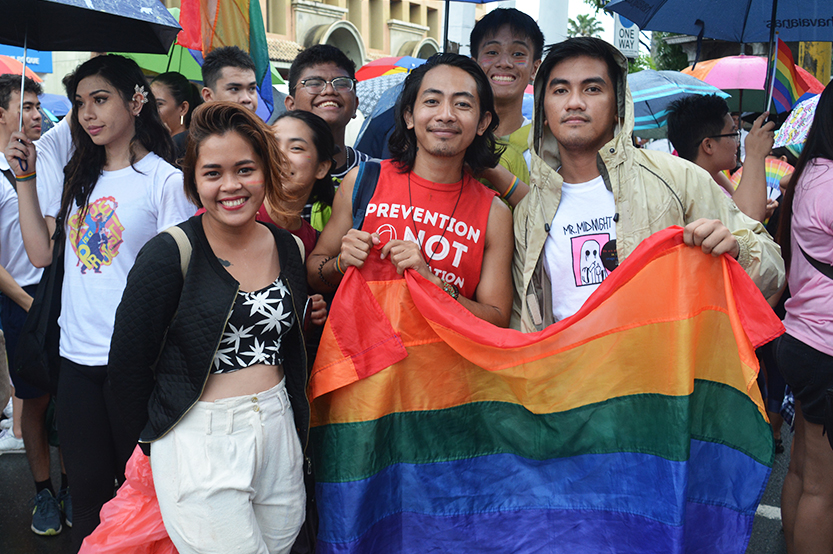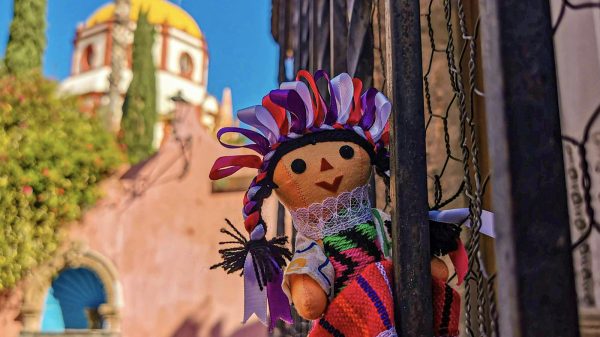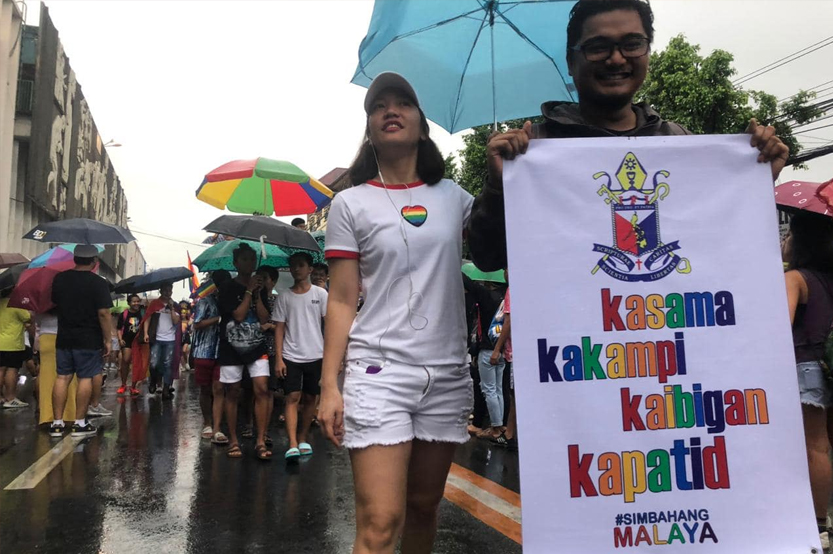By Koko Alviar
The SOGIE Equality Bill is not against religious freedom. If anything, it will help us recapture the diversity of beliefs in our country.
I am Vaughn Alviar, from the Iglesia Filipina Independiente, a liberational Church that has interpreted Scripture in light of facts and God’s commissioning for charity and liberation. The Church coopted me some time in 2015 to help the Supreme Council of Bishops articulate a statement that wanted to affirm LGBTIQ+ individuals, “Our Common Humanity, Our Shared Dignity.” It was approved in February 7, 2017.
Incidentally, I am a homosexual cisgender male son of a heterosexual cisgender male priest. I say these belatedly because they have never negatively affected my craft as a writer and my practice as a good Christian, although I will not deny knowledge of my SOGIE has affected the perception of what I am capable of doing.
I am more than my SOGIE; in fact we in the LGBTQ+ community are all more than our SOGIE. Unfortunately, people have seen the physical manifestations of it and felt they could see right through us, judge and discriminate us. My classmates from Day Care in Sanchez Mira, Cagayan, to university in Baguio City had always criticized my being effeminate and emotional, my not being manly. Despite all these, I had the will power to prove my value in my communities and circles. I can’t say the same for many others, whose chances were impaired by abuses far worse than I’ve experienced and who didn’t belong to families that earned well enough to send them to good schools or who disowned them – sometimes because of the faith they profess.
Being LGBTQ+ is a choice, we are told. But, given all the disadvantages laid out before us (per the United Nations Office of the High Commissioner for Human Rights, LGBTQ+ people experience more poverty, hunger, joblessness and depression than our heterosexual, cisgender counterparts), what would we benefit from choosing to be minoritized? Having to prove we are good, capable and beneficial workers, or hiding how we express ourselves to conform with straight environments, these are definitely burdens. Our siblings in the faith have claimed that the law sees us equally, but our lived experiences and jurisprudence claim we are not. Thus, vulnerable sectors need the State to help us claim equity, aid us in reminding everyone that we are human too, and enable us to fight back when our rights are abused.
It has also been claimed that a law protecting LGBTQ+ persons against discrimination would negate Christians’ freedom of religion. It is a preposterous claim that insults the very spirit of “freedom of religion”: that individuals will not be force-fed belief systems; and that we are all free to hold beliefs – or not – and to conduct ourselves accordingly, except when we harm others. If anything, many people, driven by their “Christian” beliefs, harmed LGBTIQ+ individuals without provocation.
While they lift from the Bible, the holy book cannot be seen as a definitive guide to what must be social convention. It has, in fact, been used to stall important laws to end slavery, and to uphold the rights of persons with disability and women.
For example:
“I permit no woman to teach or have authority over men; she is to keep silent.” (Timothy 2:11)
“Whosoever … hath any blemish, let him not approach to offer the bread of his God. For whatsoever man he be that hath a blemish, he shall not approach: a blind man, or a lame, or he that hath a flat nose, or anything superfluous, Or a man that is brokenfooted, or brokenhanded, Or crookback, or a dwarf, or that hath a blemish in his eye, or be scurvy, or scabbed, or hath his stones broken … He shall not go in unto the vail, nor come nigh unto the altar, because he hath a blemish; that he profane not my sanctuaries.” (Leviticus 21:17-23)
“Slaves, obey your earthly masters with deep respect and fear. Serve them sincerely as you would serve Christ.” (Ephesians 6:5)
With verses inapplicable in our time, how do we know for sure that verses chastising LGBTIQ+ individuals should still apply? In the laws enacted for women, children, senior citizens, persons with disability, among others, the justification was unequal treatment on the ground, in real life, despite the Constitutional guarantee of equality that our other siblings cite. The drawback was sensibilities getting hurt; the reward has been greater empowerment and participation in society for those sectors. We need our guarantee, too.
Another case in point: If two people are equally passionate about Bible-based beliefs, do we have objective criteria to judge which person is more righteous?
Here is an example: A cisgender man has been a top employee for years. He is the breadwinner for his family, encouraged by 1 Timothy 5:8: “But if anyone does not provide for his relatives, and especially for members of his household, he has denied the faith and is worse than an unbeliever.” One day, he comes out as homosexual and discloses he has a boyfriend. The heterosexual cisgender owner, who comes from a conservative background, fires the person, because of Romans 1:26-27: “Because of this, God gave them over to shameful lusts. Even their women exchanged natural sexual relations for unnatural ones. In the same way the men also abandoned natural relations with women and were inflamed with lust for one another.”

Who’s to say that the business owner holds the right understanding of faith? What if the homosexual man goes to church more often? Doesn’t that make him better? The law must declare that productivity trumps sexual orientation.
One thing I’ve observed among people of faith who decide not to support the SOGIE Bill is self-righteousness – a confidence that they are to be seen as authoritative, the voice of a majority. In doing so, they downplay other peoples’ faith, among these that which LGBTQ+ individuals have forged from their lived experiences of discrimination and resilience.
While some traditions will scoff at the justness of the ordained going to protests, the Aglipayan faith believes it is a legitimate expression of Christian witness. We believe that the best way to fulfill our duty to establish heaven on earth is the full realization of human rights for all – and LGBTQ+ rights are human rights. Thus, the crusade for equality on the basis of SOGIE falls within our fight for equity, along with our advocacy for peace talks, economic equity, genuine land reform and more.
Another Christian community is the Metropolitan Community Church, which has a presence in the Philippines. It casts more importance on love, genuine relationships and nondiscrimination than on punishment and fear. Many of their members are victims of SOGIE-based discrimination even in their own Christian homes, or are people living with HIV who have the added burden of stigma. One member told me that her family attends a Church that has a ministry helping LGBTQ+ individuals possessed by the devil – she worships with her family in the morning, is occasionally prayed for; she worships at MCC in the afternoon, is welcomed fully as a gender-nonconforming woman. There has to be a policy to guard LGBTQ+ lives against torturous conversion rituals if and when they occur. The SOGIE Bill has that.
The above instances illustrate that a single religion on its own has variations and pluralities. But, if regardless of this, lawmakers side with the more conservative Christian belief that tends to put LGBTQ+ lives in the way of harm and indignity, what compels the State other than to reward the conservatives and, thus, violate the Church-State separation?
As faithful Christians, too, we stand on the passage of the SOGIE Law because we believe God wants us to exist in a community of love, and because it will permeate our lives beyond Church. “We love the sinner not the sin,” some anti-SOGIE Christians say, in an attempt to deem the law irrelevant. If we do love the sinner, however, shouldn’t we recognize the person of that sinner who has the secular, universal right to a job, education and healthcare, among others. None of these are about “the homosexual act.”
It is a shame that some religious have led crusades based on falsehoods: from alleging we do not need the SOGIE Equality Bill because the law already pronounces equality; to criticizing our advocacy as an issue of restrooms and third spaces only; to misleading people that the SOGIE Equality Bill will allow same-sex marriage; to stretching religious freedom – weaponizing it to homogenize the nation when the measure actually protects diversity.
The “definition of terms” in the proposed bills says that bad behavior – discrimination, stigma, hate crime and marginalization – will warrant punishment. Some religious are worried that LGBTIQ+ individuals will be empowered to file cases of discrimination simply because we “felt discriminated.” But suing should be within our rights as citizens, and with wisdom the courts should be able to decide which ones are nuisance and which ones bear sense.
In IFI, the statement has affirmed and validated the faithfulness of LGBTQ+ members, some of whom serve as ordained ministers. Through it, the faithful have been oriented on SOGIE and SOGIE-based discrimination; began to openly discuss sexuality, mental health and sexual harassment; and revisited the situation of women as part of the greater gender minority in a patriarchal society. We are now more equipped to counsel LGBTQ+ individuals and people living with HIV. The Church became more inclusive.
At the end of “Our Common Humanity, Our Shared Dignity,” the SCB stated a hope that our small act could spark bigger changes leading to greater inclusion for outcasts. The more accepting parents, you will note, express worry for their LGBTQ+ children based not on the worldview of conservative Churches but on the question: “How will you be in this world that is harsh on LGBTQ+ individuals?”
While some LGBTQ+ people are born to parents who are unequipped and would abandon their children, some are born to parents who are ready to understand and nurture them, and would worry that the world at large is not hospitable. Let’s lessen the legitimate fears by enacting a safeguard.
While the SOGIE Bill languishes, men could be raping homosexual and bisexual women to “convert them,” gay guys could be looking for their next boxing match or Miss Gay (for visibility and extra income), brilliant transgender individuals could be flying out to find career advancement elsewhere.
With the SOGIE Law enforced, the sensibilities of some (they cannot claim to represent the majority) will be offended as has happened in legislation on women’s rights, but the tradeoff will be LGBTQ+ individuals participating more meaningfully in national development. With the SOGIE Law, there will be no special LGBT bonuses or leaves, just jobs and schools and communities that value us as humans, and that hone and harness our skills as citizens.
The Philippines would foster a culture of nonviolence, and I think God would be smiling down on us.
On social media, there’s a viral post saying SOGIE means “Satanic Organization of Godless people who are Inspired of Evil”, which is so grammatically wrong. To me, it means “Salvation Our God Is Extending” – and I should enjoy a Constitutional guarantee to claim you can’t tell me I’m wrong. That is freedom of religion for you.





























































